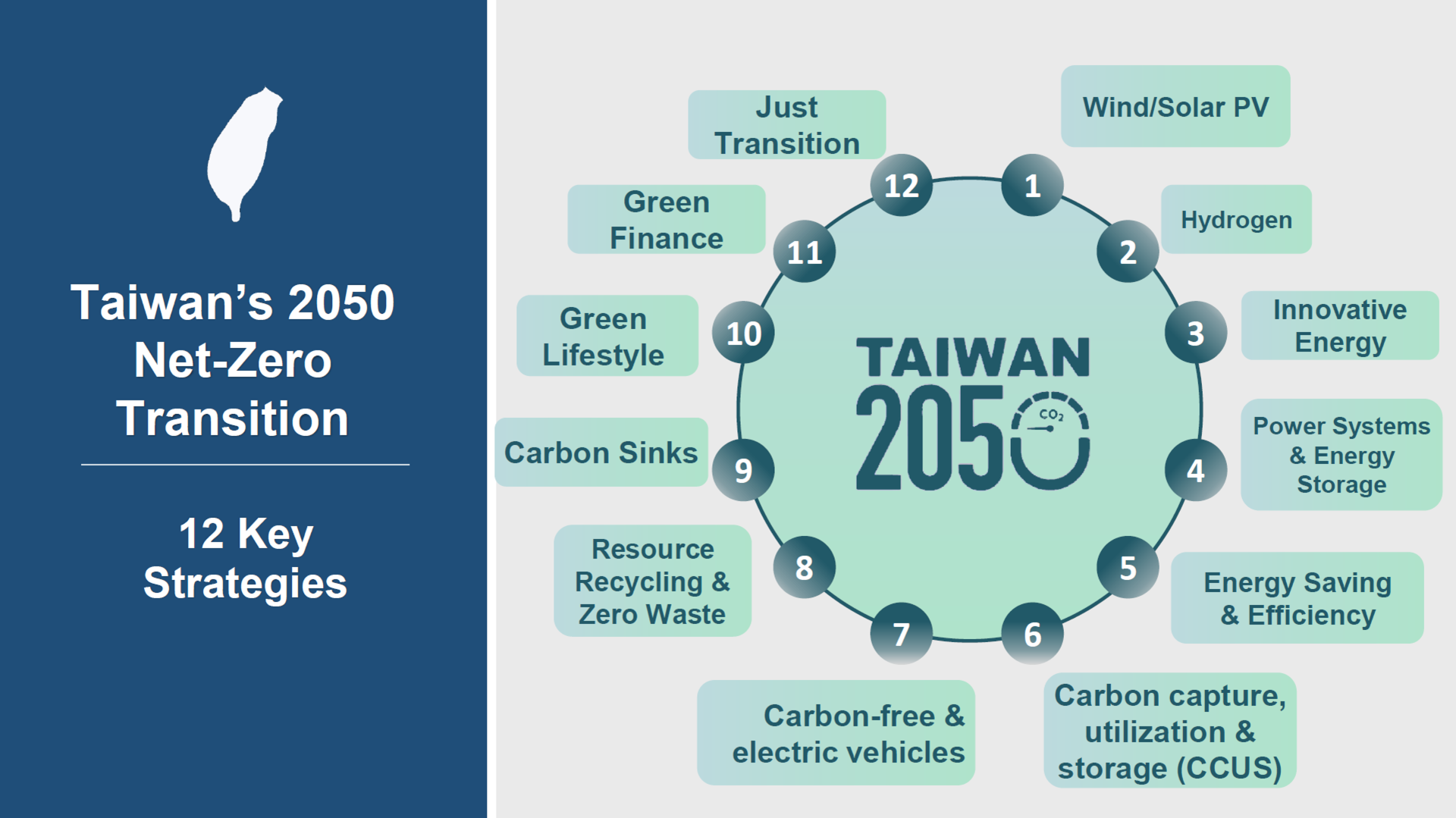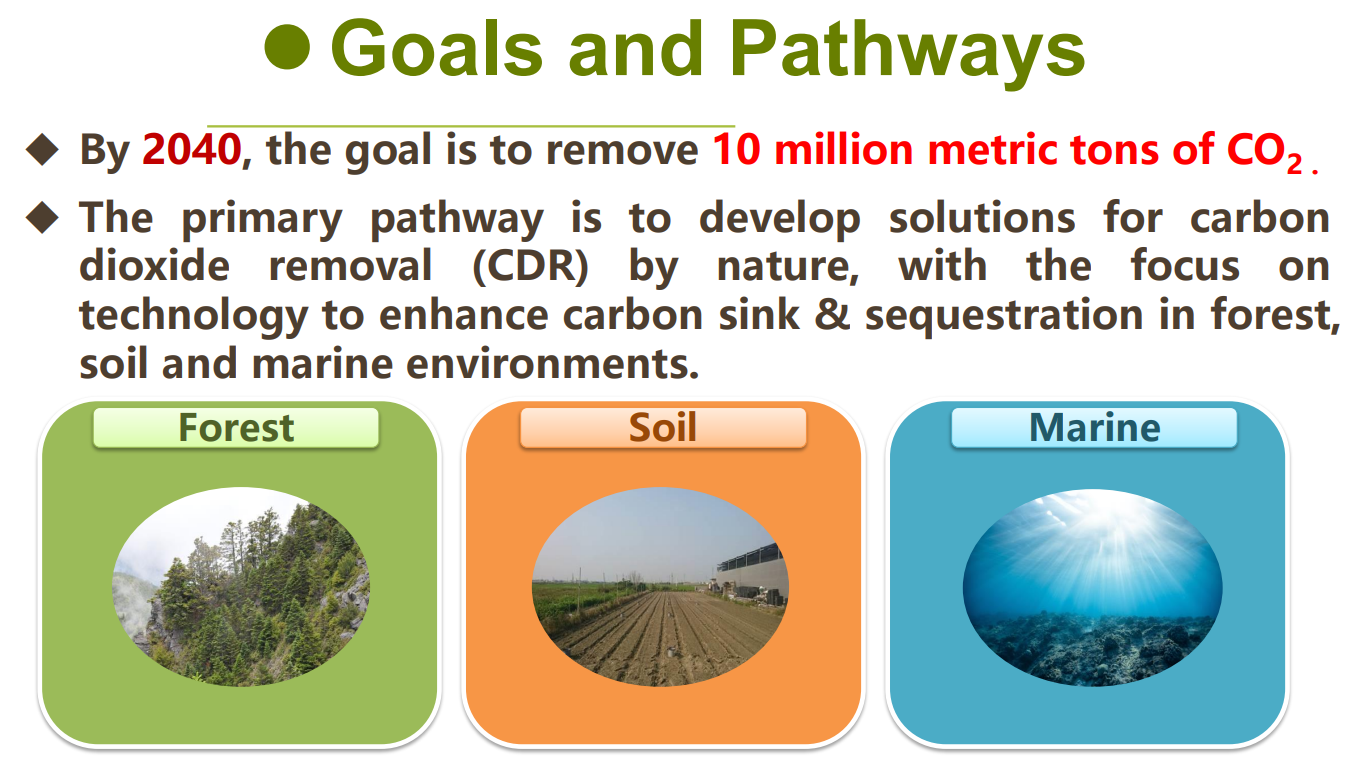Information
Information
In order to mitigate the impact of anthropogenic on atmospheric, oceanic, and terrestrial warming, and collectively curb the global warming trend, the United Nations adopted the Climate Agreement during the Conference of the Parties on December 12, 2015, in Paris. The agreement aims to prevent global temperatures from rising more than 2°C, preferably limiting the increase to within 1.5°C, to lessen the risks associated with climate change.
According to the Intergovernmental Panel on Climate Change (IPCC) Sixth Assessment Report released in April 2022, the Working Group III issued a warning that without rapid deep decarbonization, it will be impossible to contain global warming to 1.5°C by 2050. In response to the global net-zero trend, Former President Tsai Ing-wen declared on Earth Day, April 22, 2021, that achieving net-zero emissions by 2050 is a crucial policy goal for Taiwan. The National Development Council also announced Taiwan's "2050 Net Zero Emissions Pathway" on March 30, 2022. This involves promoting four major transition strategies—Energy Transition, Industrial Transition, Lifestyle Transition, and Social Transition—along with 12 key strategic actions to gradually realize a sustainable society with net-zero emissions by 2050. Among these, "Natural Carbon Sink" is the ninth key strategic action, where "carbon sink" refers to natural environments capable of sequestering and storing carbon dioxide.
The goal effectiveness of this strategy is assessed based on the total increase in carbon sink amount (carbon dioxide equivalent) for the fiscal year as the ultimate benefit evaluation indicator. The overall strategic content is planned and implemented according to pathways in the three major carbon sink areas: forests, soil, and oceans, with specific measures and essential tasks projected accordingly.
Soil carbon sink represents the largest natural carbon sink potential area in terrestrial systems, playing a crucial role due to the reliance of crop production on soil. In conjunction with the transformation of agricultural and food industry operations, it is imperative to plan appropriate and effective soil carbon sink benefits without delay. The strategic framework for promoting soil carbon sink pathways includes strengthening soil management practices, establishing carbon-negative farming methods, and enhancing research and development efforts in soil carbon sink-related technologies.


More information:https://gov.tw/UUw


More information:https://gov.tw/UUw




